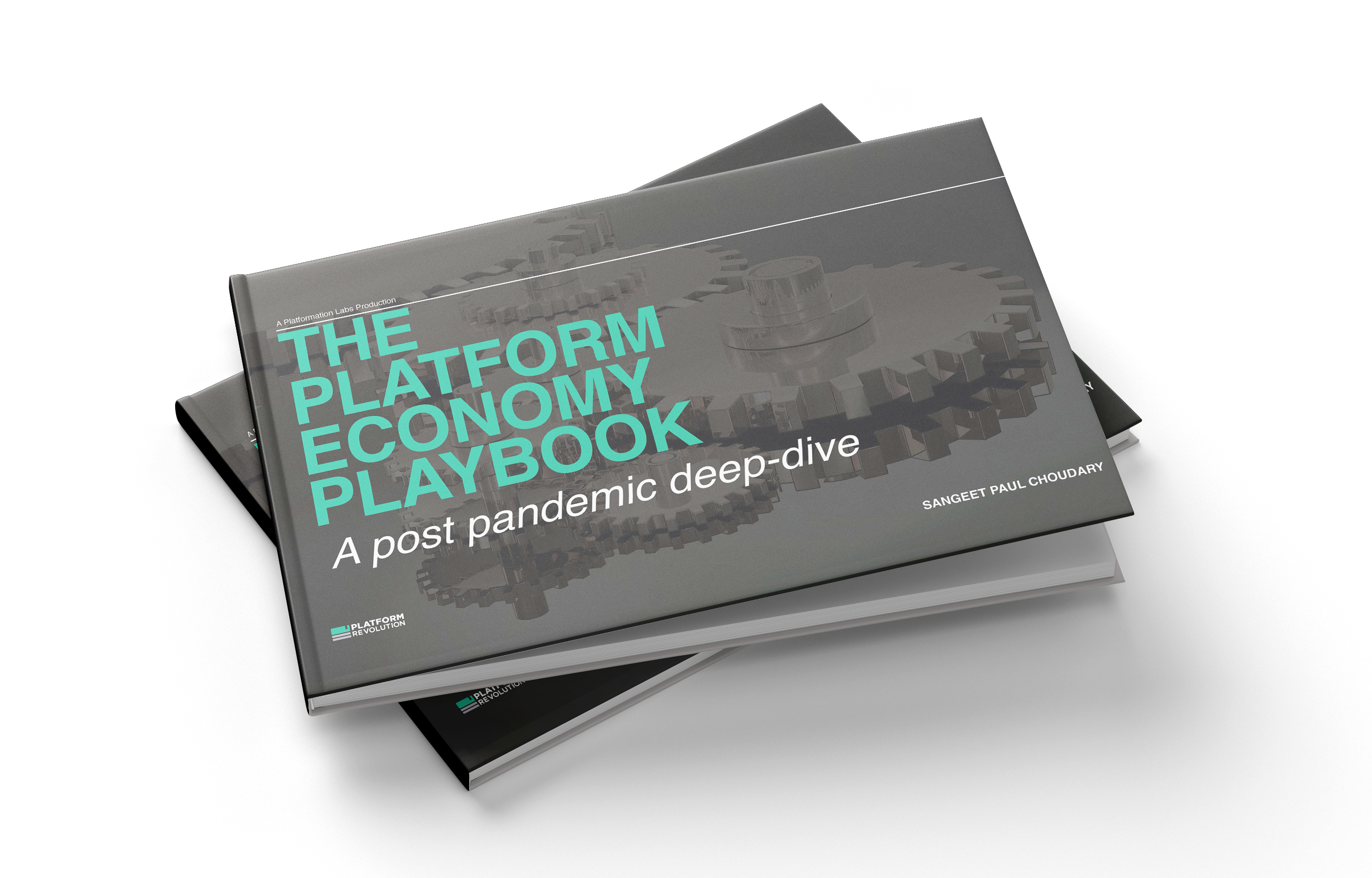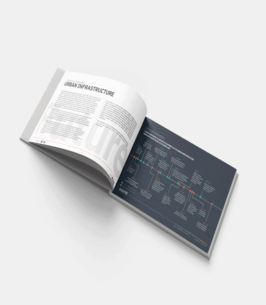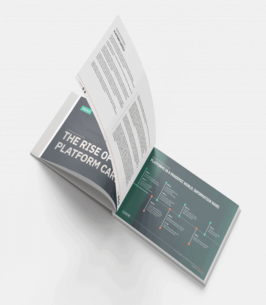Digital Transformation
Building trust in digital platform ecosystems
How do we provide a high trust environment for ecosystem participants to interact?
This article is part of the Digital Platforms hub
Platform firms create value through enabling interactions in the ecosystem. Trust is key to enabling these interactions. Platforms that organize fragmented and unorganized markets succeed by fostering a trusted environment for market interactions.
A platform firm must work across a spectrum of mechanisms to foster trust in the ecosystem.
A common approach to fostering trust is through the creation of a reputation system. A reputation system determines the reputation of an ecosystem participant, based on data that is gathered from platform usage as well as data that is imported from other off-platform sources.
Some platforms set up explicit reputation systems by employing levels and certifications to signal a participant’s credibility. For instance, platforms like Stack Overflow use levels and badges to signal reputation.
The role of reputation extends beyond signaling to informing the platform’s algorithms. For instance, Airbnb displays a host rating externally but may leverage many other signals of host reputation and accommodation quality while determining the ranking and visibility of a particular listing. Identity management and access control play a key role in fostering trust. The rise of Facebook’s social graph as an open utility was a key driver of the sharing economy. Airbnb users and Lyft riders could link their accounts to their Facebook profiles. Tinder and a whole range of other social platforms allowed users to sign up through Facebook Connect. Further, platforms like Airbnb confirm a listing by sending out photographers to the apartment, while babysitters on Sittercity must go through a stringent access control and curation process before being allowed on board.
The higher the interaction risks, the greater the need for trust.
Trust is critical to mobilizing the ecosystem and platform firms must strategize across a spectrum of options to architect trust creating to foster ecosystem interactions.
Feel Free to Share
Download
Our Digital Platforms Hub
- Leverage our extensive library of ecosystem maps created across different industries
- Identify the accelerating forces to compete in ecosystems
- Design a structured approach to winning with digital platforms
- Determine potential value pools and digital platform models in your industry
Some platforms may require the establishment of a centralized moderation and editorial function to moderate and govern participation. This is especially important if
(1) an expert can determine quality better than the average user or
(2) it is too early for the ecosystem to self-govern itself.
In its early days, every platform uses centralized moderation in some form. Centralized moderation is the simplest method to implement trust in the early days of the platform, but it is also the least scalable approach to creating trust. As the ecosystem scales, platforms must decentralize trust creation to algorithmic and social curation.
Finally, in high-risk markets, platforms may even have to provide additional insurance or cover to protect participants. Platforms like Uber and Airbnb encourage ecosystem participation by offering them insurance against undesirable situations. Overall, trust is critical to mobilizing the ecosystem and platform firms must strategize across a spectrum of options to architect trust creating to foster ecosystem interactions.
👈 Previous article related Digital Platforms Next article related to Digital Platforms👉
Frequently Asked Questions
How do platform firms reconcile privacy, security, reputation systems, and identity management amidst extensive data collection?
Balancing the need for user privacy and data security with the implementation of reputation systems and identity management protocols is a complex challenge for platform firms. While reputation systems and identity management play crucial roles in fostering trust, platforms must prioritize user privacy and data security to maintain trust in the ecosystem. This involves implementing robust data protection measures, such as encryption and access controls, to safeguard user information. Additionally, platforms may need to provide transparency regarding data usage and give users control over their personal data. Finding the right balance between trust-building mechanisms and data privacy is essential for maintaining user confidence in the platform.
What challenges did platform firms face transitioning from centralized to decentralized trust creation as ecosystems grew?
Platform firms that successfully transitioned from centralized moderation to decentralized trust creation mechanisms faced various challenges during this process. One challenge is ensuring that decentralized trust mechanisms effectively maintain the quality and integrity of interactions within the ecosystem. As platforms scale, relying solely on centralized moderation becomes impractical due to resource constraints and scalability issues. Therefore, platforms need to develop algorithmic and social curation mechanisms to supplement or replace centralized moderation. This transition requires careful planning and iterative refinement to ensure that trust-building processes remain effective while accommodating the growing scale and complexity of the ecosystem.
What strategies can platform firms use to build trust in high-risk markets beyond insurance?
In high-risk markets, platform firms may employ additional strategies beyond offering insurance or cover to protect participants and foster trust. For example, platforms can implement stringent verification and background checks for participants, such as hosts on home-sharing platforms or service providers on gig economy platforms. Enhancing transparency and accountability through features like user reviews and ratings can also help build trust among participants. Moreover, platforms may collaborate with regulatory authorities or industry organizations to establish standards and guidelines for participant conduct and dispute resolution. By taking a multi-faceted approach to trust-building, platform firms can create a safer and more reliable environment for ecosystem interactions in high-risk markets.
State of the Platform Revolution
The State of the Platform Revolution report covers the key themes in the platform economy in the aftermath of the Covid-19 pandemic.
This annual report, based on Sangeet’s international best-selling book Platform Revolution, highlights the key themes shaping the future of value creation and power structures in the platform economy.
Themes covered in this report have been presented at multiple Fortune 500 board meetings, C-level conclaves, international summits, and policy roundtables.
Subscribe to Our Newsletter













